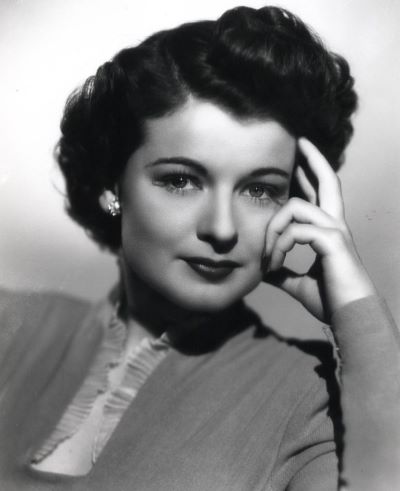Star Trek: Voyager (1995 & 1996)
Star Trek: Enterprise (2002)
Star Trek: The Next
Generation
Season 7. Episode 7.
Episode entitled: Dark
Page.
Released October 30,
1993.
Directed by Les Landau.
Written by Hilary J.
Bader, René Echevarria, Naren Shankar.
Created by Gene
Roddenberry.
Music by Jay Chattaway.
Cast: Patrick Stewart,
Jonathan Frakes, LeVar Burton, Michael Dorn, Gates McFadden, Marina Sirtis,
Brent Spiner, Majel Barrett, Norman Large, Kirsten Dunst, Amick Byram, Andreana
Weiner, David Keith Anderson, Michael Braveheart, Buck (the Wolf), Tracee
Cocco, John Copage, Debbie David, Hal Donahue, Gunnel Eriksson, Fumiko Hamada,
Deborah Landis, Christina Wegler Miles, Rad Milo, Gina Saadi, Richard Sarstedt,
Teddy (the Wolf); Oliver Theess.
Star Trek: Voyager
Season 2. Episode 8.
Episode entitled: Persistence
of Vision.
Released October 30,
1995.
Directed by James L.
Conway.
Created by Rick Berman,
Michael Piller, Jeri Taylor.
Written by Jeri Taylor,
Kenneth Biller, Lisa Klink.
Based on Star Trek,
created by Gene Roddenberry.
Music by Dennis
McCarthy.
Cast: Kate Mulgrew,
Robert Beltran, Roxann Biggs-Dawson, Jennifer Lien, Robert Duncan McNeill,
Ethan Phillips, Robert Picardo, Tim Russ, Garrett Wang, Michael Cumpsty,
Carolyn Seymour, Stan Ivar, Warren Munson, Lindsey Haun, Thomas Dekker, Patrick
Kerr, Marva Hicks, Majel Barrett, John Copage, Tarik Ergin, Susan Henley, Kerry
Hoyt, Susan Lewis, Lisa Kennedy Montgomery, Louis Ortiz, Richard Sarstedt.
Star Trek: Voyager
Season 3. Episode 7.
Episode entitled: Sacred
Ground.
Released October 30,
1996.
Directed by Robert
Duncan McNeill.
Created by Rick Berman,
Michael Piller, Jeri Taylor.
Written by Lisa Klink,
Geo Athena Trevarthen / Geo Cameron.
Based on Star Trek,
created by Gene Roddenberry.
Music by Jay Chattaway.
Cast: Kate Mulgrew,
Robert Beltran, Roxann Biggs-Dawson, Jennifer Lien, Robert Duncan McNeill,
Ethan Phillips, Robert Picardo, Tim Russ, Garrett Wang, Becky Ann Baker,
Estelle Harris, Keene Curtis, Parley Baer, Harry Groener, Renna Bartlett, T.
Budeck, Damaris Cordelia, Tarik Ergin, Gregg France, Dorio Gray, Kerry Hoyt,
Diane Lee, Irene Lonker.
Star Trek: Enterprise
Season 2. Episode 6.
Episode entitled: Marauders.
Released October 30,
2002.
Directed by Michael/Mike
Vejar.
Written by David Wilcox,
Rick Berman, Brannon Braga, André Bormanis.
Created by Rick Berman,
Brannon Braga.
Based on Star Trek,
created by Gene Roddenberry.
Opening theme song: Faith
of the Heart, performed by Russell Watson.
Closing theme: Archer's
Theme, by Dennis McCarthy.
Music by Velton Ray
Bunch.
Cast:
Scott Bakula, John Billingsley, Jolene Blalock, Dominic Keating, Anthony
Montgomery, Linda Park, Connor Trinneer, Larry Cedar, Steven Flynn, Bari
Hochwald, Jesse James Rutherford, Robertson Dean, Wayne King, Peewee Piemonte,
Alexandrea Ortiz, Michael Bailous, Chelsea Bond, Michael Braveheart, Mark
Correy, Vince Deadrick Jr., Christopher Doyle, Leigh Hennessy, Pablo Soriano.
.jpg)
%201.jpg)
%201.jpg)
%201.jpg)
%202.jpg)
%201.jpg)
%202.jpg)
%203.jpg)
%204.jpg)
%205.jpg)
%206.jpg)
%207.jpg)
%208.jpg)
%209.jpg)
%2010.jpg)
%2011.jpg)
%2012.jpg)
%2013.jpg)
%2014.jpg)
%2015.jpg)
%2016.jpg)
%2017.jpg)
%2018.jpg)
%2019.jpg)
%2020.jpg)
%2021.jpg)
%2022.jpg)
%2023.jpg)
%202.jpg)
%204.jpg)





.jpg)









.jpg)
